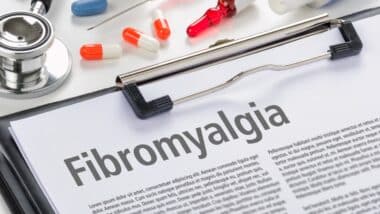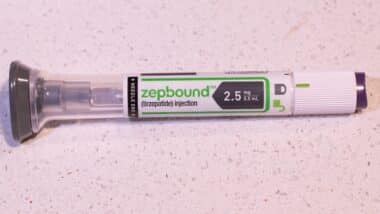 Eliquis, one of the new generation of anticoagulant medications, gives patients with atrial fibrillation a more convenient treatment process. However, it does so at the cost of increasing the risk of dangerous and uncontrollable bleeding.
Eliquis, one of the new generation of anticoagulant medications, gives patients with atrial fibrillation a more convenient treatment process. However, it does so at the cost of increasing the risk of dangerous and uncontrollable bleeding.
Background on Eliquis
Also known by its generic name apixaban, Eliquis works by inhibiting a protein called Factor Xa that is necessary for blood clotting. Factor Xa inhibition reduces the generation of thrombin and with it the formation of blood clots.
The FDA first approved Eliquis in December 2012 as a treatment to prevent stroke and systemic embolism, a type of blood clot, in patients with non-valvular atrial fibrillation. Atrial fibrillation disrupts the flow of blood through the heart, creating a higher risk of dangerous blood clot formation. Anticoagulant medication helps reduce that risk.
Since that initial approval, Eliquis has also been approved for prevention of deep vein thrombosis in patients who have undergone hip or knee surgery (March 2014), and later for the treatment of existing deep vein thrombosis and the prevention and pulmonary embolism (August 2014).
Eliquis is one of a new generation of blood thinning medications, the other two being Pradaxa (approved by the FDA in October 2010) and Xarelto (approved November 2011). This new generation is the first group of medications to enter the market for anticoagulants in decades. Since 1954, that market had been dominated by Warfarin, also sold under the brand name Coumadin.
Warfarin has one particular drawback, as finding and maintaining the right dosage is tricky. Too much Warfarin creates a risk of excessive bleeding, and too little would not remedy the risk of clotting. To maintain that balance, Warfarin treatment requires continuous blood testing and dosage adjustment by a physician. The patient must also control his or her intake of vitamin K, which counteracts the effect of Warfarin. Eliquis and the other new anticoagulants do not require the same continuous monitoring and adjustment; the physician can determine the correct dosage once, then leave it where it is.
Side Effects of New Generation Anticoagulants
The new anticoagulants like Eliquis also have one major drawback, in that they do not have any antidote, or reversal agent, that can stop excessive bleeding once it starts. Excessive bleeding is a risk inherent in all anticoagulants. With Warfarin, if excessive bleeding starts, administering Vitamin K can get it under control. Eliquis, however, has no such reversal agent. Once Eliquis induces excessive bleeding, it can continue until the body naturally processes the drug. According to the FDA’s most recent labeling for Eliquis, its anticoagulant effect can be expected to last for at least 24 hours after the last dose.
This excessive bleeding is a serious and potentially fatal problem. It can manifest as intracranial hemorrhage, gastrointestinal bleeding, or bleeding in the kidneys, and it can lead to anemia. It can also complicate other simultaneous medical treatment. Emergency surgery, for example, is significantly riskier in patients undergoing Eliquis treatment. And simultaneous use of common over-the-counter medicines like aspirin and non-steroidal anti-inflammatory drugs only increases the risk of internal bleeding. Other medications that can aggravate the risk of Eliquis bleeding include other anticoagulants, heparin, thrombolytic agents, selective serotonin reuptake inhibitors, and serotonin norepinephrine reuptake inhibitors.
Do YOU have a legal claim? Fill out the form on this page now for a free, immediate, and confidential case evaluation. The Eliquis attorneys who work with Top Class Actions will contact you if you qualify to let you know if an individual lawsuit or Eliquis class action lawsuit is best for you. [In general, Eliquis lawsuits are filed individually by each plaintiff and are not class actions.] Hurry — statutes of limitations may apply.
Get Help – It’s Free
Join a Free Eliquis Class Action Lawsuit Investigation
If you or a loved one took Eliquis (apixaban) and suffered injuries such as uncontrollable internal bleeding, gastrointestinal bleeding, hemorrhaging, kidney bleeding or death, you may have a legal claim. See if you qualify by filling out the short form below.
An attorney will contact you if you qualify to discuss the details of your potential case at no charge to you.
Oops! We could not locate your form.
ATTORNEY ADVERTISING
Top Class Actions is a Proud Member of the American Bar Association
LEGAL INFORMATION IS NOT LEGAL ADVICE
Top Class Actions Legal Statement
©2008 – 2025 Top Class Actions® LLC
Various Trademarks held by their respective owners
This website is not intended for viewing or usage by European Union citizens.












